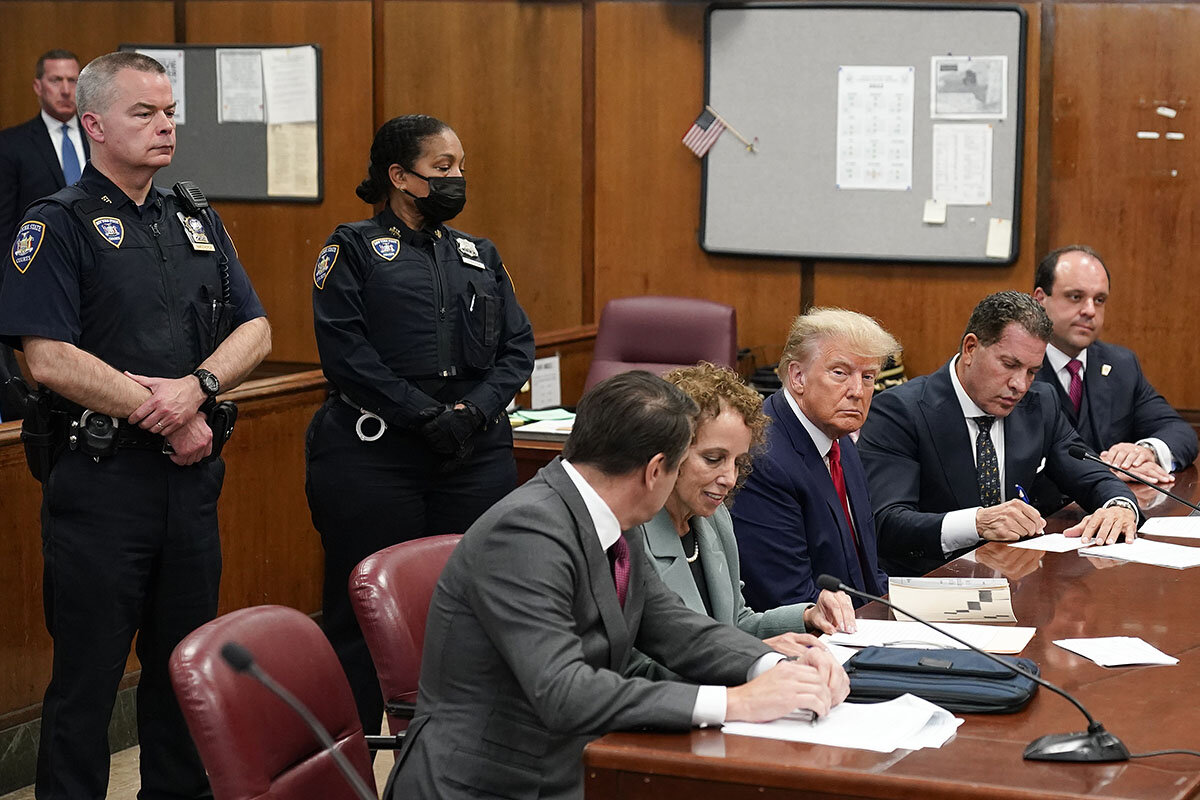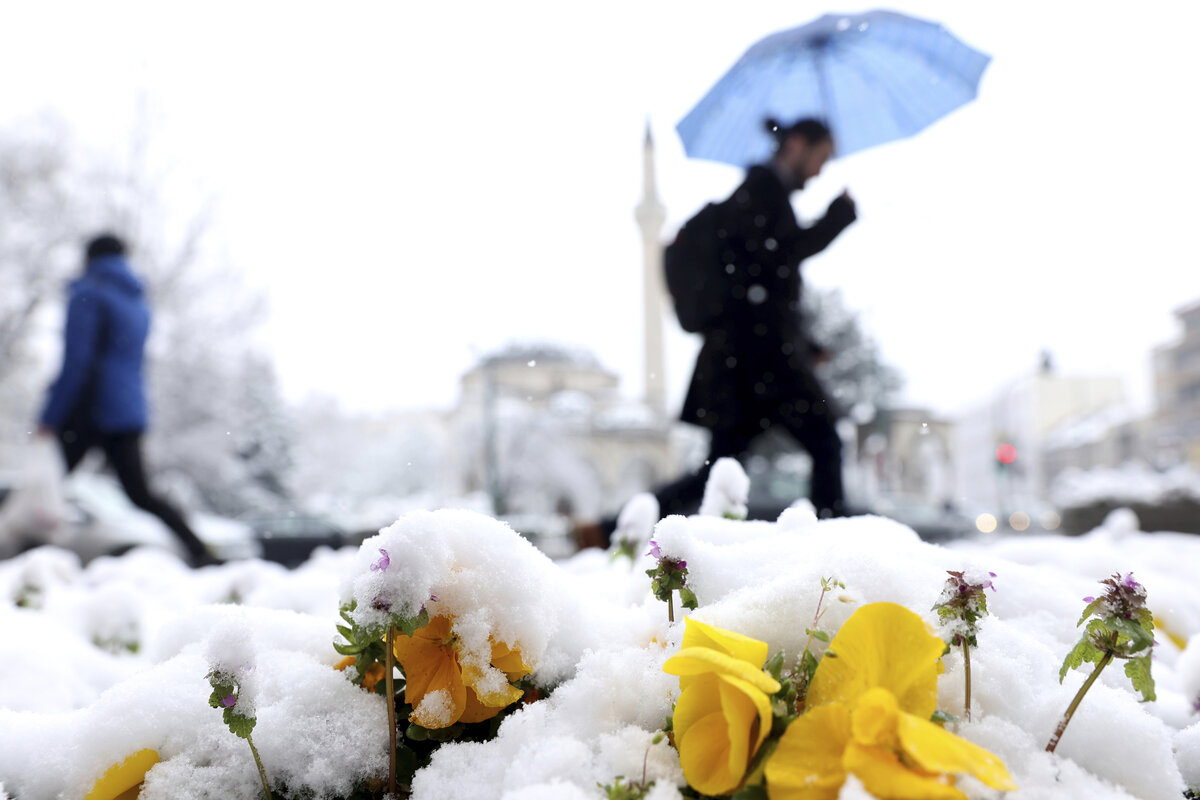The first-ever criminal charges filed against a former U.S. president opened a chapter of legal vulnerability for Donald Trump. Three other indictments could follow.
Monitor Daily Podcast
- Follow us:
- Apple Podcasts
- Spotify
- RSS Feed
- Download
 Ken Makin
Ken Makin
This past weekend, I watched a trio of scintillating women’s college basketball games, capped by a long-awaited championship for Louisiana State University. The games were the most watched in the sport’s history, and we shouldn’t be afraid to admit one aspect that stirred attention – the specter of race.
It drew the nation to Earvin “Magic” Johnson and Larry Bird in the finals of the 1979 NCAA men’s basketball championship. Nearly 15 years later, Duke and the University of Nevada, Las Vegas battled in back-to-back years – a predominantly white team against a predominantly Black team. This weekend saw a repeat, with mostly white Iowa against LSU and South Carolina, which are largely Black.
When sports becomes a conduit to talk about social commentary and personal values, bias is inevitable. Yet the way the media and everyday people discuss race is largely crude, and double standards are a part of it. The big talking point after Sunday’s finale wasn’t the game, but when LSU’s Angel Reese playfully taunted Iowa’s tournament darling, Caitlin Clark, in the waning moments. Ms. Reese is Black. Ms. Clark is white.
Ms. Reese’s gestures turned into a referendum on LSU’s team, and by association, Black female athletes. It was a questionable about-face from Ms. Clark’s reputation for “trash talk,” which reminded me of Mr. Bird, he of the legendary back-and-forth banter.
I find that discussing race isn’t the problem – the challenge is unfairly attributing stereotypes and harmful narratives to players. South Carolina coach Dawn Staley painfully noted this after the previously undefeated Lady Gamecocks lost to Iowa Friday, questioning the way the opposing coach characterized her team’s physical style of play. “We’re not bar fighters,” she said. “We’re not thugs.”
All parties involved want to be respected as basketball players. Racial and gender biases only deter us from appreciating generational talents in the present. Ms. Reese broke an NCAA record for scoring and rebounding; Ms. Clark broke the all-time tournament scoring mark.
When we find the range and responsibility to address our own biases, we might experience a change in how we perceive sports – and our country overall.










